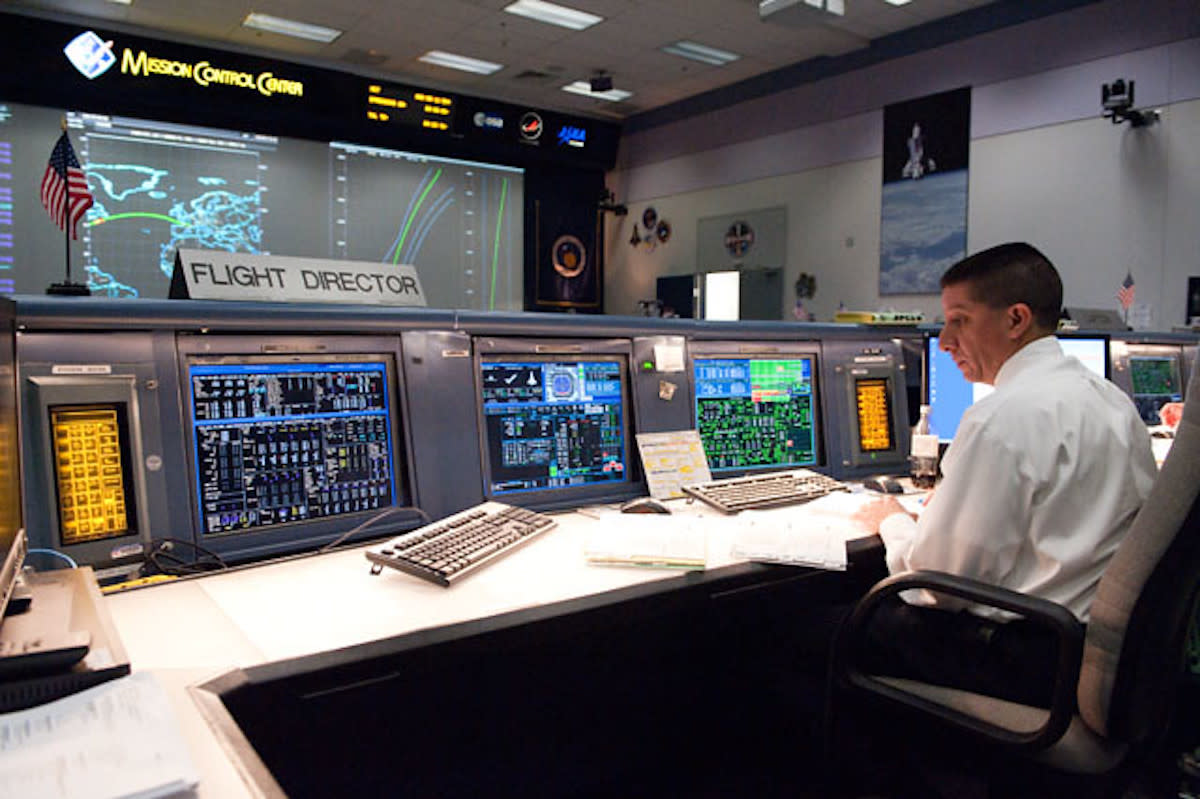What Is CAPCOM? Learn How Astronauts Communicate With Mission Control on Earth
Written by MasterClass
Last updated: Sep 29, 2021 • 3 min read
From the Mars Rover to the Saturn V to the Space Shuttle Discovery, space exploration requires a dedicated team on the ground to make sure the mission goes smoothly. At NASA’s Mission Control, if everyone was talking to the crew members on orbit simultaneously, it would be a noisy, confusing babble. Right from the beginning of the U.S. space program, astronauts realized they needed one voice—someone they could trust—to be their relay on Earth. That person is called the Capsule Communicator, or CAPCOM.
Learn From the Best
What Is CAPCOM?
CAPCOM is an essential role in the mission control team. CAPCOM is the communication liaison between the astronauts and the Mission Control Center (MCC). This person is directly responsible for relaying the decision-making of the space agency’s flight director to the command module pilot and the other astronauts, as well as communicating the needs of the astronauts to mission control.
What Does CAPCOM Do?
CAPCOM is one of the many flight controllers who work in the NASA Mission Control Center (sometimes referred to as a flight operations center) located in Houston, Texas. Operating out of the mission operations control room—also called the station flight control room—the NASA flight control team in the command center are responsible for both the success of the space missions and the safety of the astronauts.
- Traditionally, CAPCOM is a role filled almost exclusively by former astronauts, as was the case for the Apollo 10, Apollo 13, Apollo 11 lunar landing mission, and the Shuttle missions of the Space Shuttle Program.
- However, due to the diminished size of the astronaut corps in recent years, non-astronauts have acted as CAPCOM during International Space Station (ISS) missions.
What Does CAPCOM Mean?
CAPCOM’s acronym of “Capsule Communicator” comes from Project Mercury, when the original space shuttles were all capsule-shaped. NASA understood that it was essential for all communication with NASA astronauts to be filtered through a single person in NASA’s Mission Control Center back on Earth, in order to streamline the sharing of information.
Though the first flights of the Apollo Program that launched from Cape Canaveral were managed by the Kennedy Space Center, control of U.S. shuttle flights shifted to the Johnson Space Center in Houston, Texas for the first time in the early 1960s. For this reason, CAPCOM began using the call-sign “Houston” when communicating with the astronauts in space flight.
3 Essential CAPCOM Responsibilities
CAPCOM’s responsibilities are essential to the success of each mission.
- 1. CAPCOM’s job is to listen to all of the information about the mission from every console in the room, hear what the Flight Director wants the crew to know, and then turn it into words the crew will understand, and decide when best to tell them.
- 2. CAPCOM is also the crew’s trusted agent on the ground, to fight battles and argue in their stead. This role is normally filled by an experienced astronaut or someone who works closely with the astronauts since they are familiar with vehicle systems, control systems, flight dynamics, and life support readings aboard the spacecraft.
- 3. On rare occasions, someone other than CAPCOM can address the crew. During the Gemini 4 mission, Flight Director Chris Kraft directly commanded United States astronaut Ed White to end his spacewalk, fearing that continuing the spacewalk would be unsafe.
Whether you’re a budding astronautical engineer or simply want to become more informed about the science of space travel, knowing the rich and detailed history of human space flight is key to understanding how space exploration has advanced. In his MasterClass, Chris Hadfield, the former commander of the International Space Station, provides invaluable insight into what it takes to explore space and what the future holds for humans in the final frontier. Chris also talks about the science of space travel, life as an astronaut, and how flying in space will forever change the way you think about living on Earth.
Want to become better engaged with science and technology? The MasterClass Annual Membership provides exclusive video lessons from master scientists and astronauts, including Chris Hadfield.
